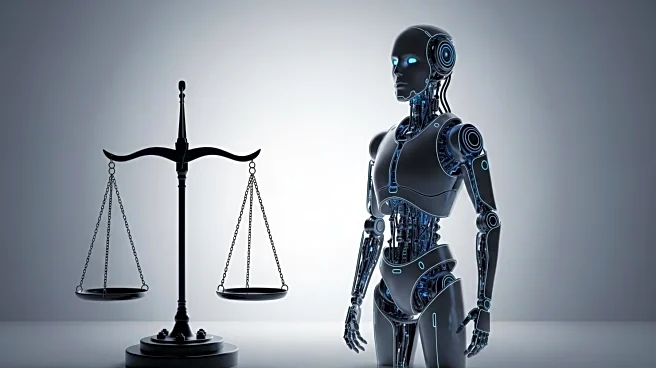What's Happening?
Anthropic, an AI company backed by Amazon, has agreed to a $1.5 billion settlement in a class-action lawsuit filed by authors. The authors accused Anthropic of using their copyrighted books without permission to train its AI chatbot, Claude. The settlement, which will be reviewed by U.S. Senior District Judge William Alsup, provides $3,000 per book for approximately 500,000 downloaded titles, with potential for more if additional works are identified. This settlement marks a significant milestone in the ongoing legal battles between AI companies and the creative industries.
Why It's Important?
The settlement is a landmark resolution in the wave of copyright lawsuits targeting tech companies, including OpenAI, Microsoft, and Meta. It sets a precedent for AI companies to compensate for the use of copyrighted works, highlighting the legal and ethical debates surrounding AI's use of copyrighted materials. This case underscores the tension between AI development and copyright law, potentially influencing future negotiations and settlements in similar cases. Authors stand to gain financially, while AI companies may face increased scrutiny and legal obligations.
What's Next?
The settlement awaits approval by the court, which could occur at a hearing scheduled for next week. If approved, it will resolve the plaintiffs' remaining claims and allow Anthropic to move forward without further litigation. The outcome may influence other copyright disputes involving AI companies, as the terms of this settlement could serve as a benchmark for future cases. The legal landscape for AI and copyright remains uncertain, potentially leading to more litigation involving different parties and similar legal issues.
Beyond the Headlines
This case highlights the broader implications of AI's use of copyrighted materials, raising questions about the balance between innovation and intellectual property rights. The settlement may prompt discussions on the need for legislation to guide AI development and training, as court cases continue to shape the future of AI products. The evolving legal framework could impact how AI companies approach data acquisition and model training, potentially affecting the industry's growth and ethical standards.











